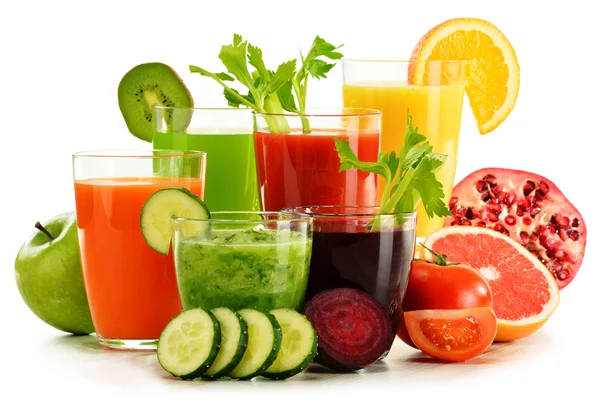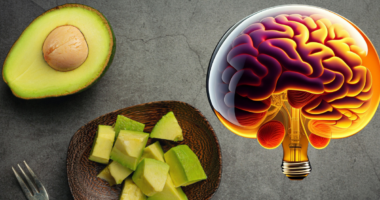10 Juice Beneficial for Fatty Liver Repair – Juices can play a significant role in supporting the repair of a fatty liver. Fatty liver, a condition where excess fat accumulates in the liver, can feel like a heavy burden. These 10 juices researched to be rich in antioxidants, vitamins, and minerals that can aid in the detoxification process and support liver health. Here are 10 options to consider, each with its own set of liver-supporting nutrients:
10 Juice Beneficial for Fatty Liver Repair
1. Beetroot Juice: This vibrant red juice is packed with nitrates and betalains, which have antioxidant and anti-inflammatory properties. These can help reduce oxidative damage and inflammation in the liver. To make it more palatable, try mixing beetroot with other fruits and vegetables like apples, carrots, or oranges.
2. Green Juice: Leafy greens like spinach, kale, and celery are powerhouses of antioxidants and essential vitamins, all beneficial for liver health. Blend them up into a refreshing green juice for a concentrated dose of these nutrients.
3. Grapefruit Juice: This citrusy juice contains naringin and naringenin, compounds that may protect liver cells from injury. However, grapefruit juice can interact with certain medications, so be sure to consult with your doctor before consuming it if you take any medications.
4. Orange Juice: Another citrusy option, orange juice provides a good dose of vitamin C, important for overall health and antioxidant activity. Just be mindful of the sugar content and opt for freshly squeezed or 100% juice with no added sugars.
5. Watermelon Juice: This summery juice is high in L-citrulline, which converts to arginine in the body. Arginine plays a role in ammonia detoxification, a crucial function of the liver. Enjoy watermelon juice in moderation to avoid excessive sugar intake.
6. Carrot Juice: Packed with vitamin A and other antioxidants, carrot juice can contribute to overall liver health. Note that it can be high in sugar, so consume it in moderation and consider diluting it with water or other low-sugar juices.
7. Cranberry Juice: Cranberries are known for their urinary tract health benefits, but they also offer potential liver-protective properties. Cranberries are naturally tart, so you might want to mix their juice with sweeter options like apples or pears.
8. Apple Juice: A readily available and versatile juice, apple juice provides essential vitamins and minerals. Choose unsweetened varieties and limit your intake to avoid excess sugar.
9. Papaya Juice: This tropical fruit juice is rich in vitamin C and papain, an enzyme with anti-inflammatory properties. Papaya juice may also aid digestion, which can indirectly benefit liver health.
10. Turmeric Juice: While not as common as other juices on this list, turmeric juice offers a powerful anti-inflammatory compound called curcumin. Curcumin may help protect the liver from damage and reduce inflammation. However, the taste of turmeric juice can be quite strong, so you might want to mix it with other fruits or vegetables.
Remember, moderation is key when consuming juices. They can be a healthy addition to your diet, but they should not replace whole fruits and vegetables. It’s also crucial to consult with your doctor before incorporating any new juices into your diet, especially if you have any underlying health conditions or take medications.
Finally, keep in mind that managing fatty liver involves a comprehensive approach. While these juices can offer some benefits, they are not a substitute for a healthy diet, regular exercise, and proper medical care. Source [1]
What are the symptoms of fatty liver?
Fatty liver disease is a condition in which excess fat accumulates in the liver, leading to inflammation and damage to liver cells. There are two types of fatty liver disease: alcoholic fatty liver disease (AFLD) and nonalcoholic fatty liver disease (NAFLD). AFLD is caused by excessive alcohol consumption, while NAFLD is associated with obesity, insulin resistance, and metabolic syndrome. Fatty liver disease is often asymptomatic, but some people may experience fatigue, discomfort in the upper right abdomen, or other symptoms. In advanced stages, fatty liver disease can lead to serious complications such as cirrhosis and liver cancer.
Causes of fatty liver
Fatty liver disease is a condition in which excess fat accumulates in the liver, leading to inflammation and damage to liver cells. There are two types of fatty liver disease: alcoholic fatty liver disease (AFLD) and nonalcoholic fatty liver disease (NAFLD). AFLD is caused by excessive alcohol consumption, while NAFLD is associated with obesity, insulin resistance, and metabolic syndrome. The risk factors most commonly linked to NAFLD are overweight, obesity, diabetes, elevated triglyceride levels, and metabolic syndrome.
Other factors that may contribute to fatty liver disease include genetics, insulin resistance, and high levels of fats in the blood
ALSO READ: The Gut-Brain Connection: How Fermented Foods Could Boost Your Mood










